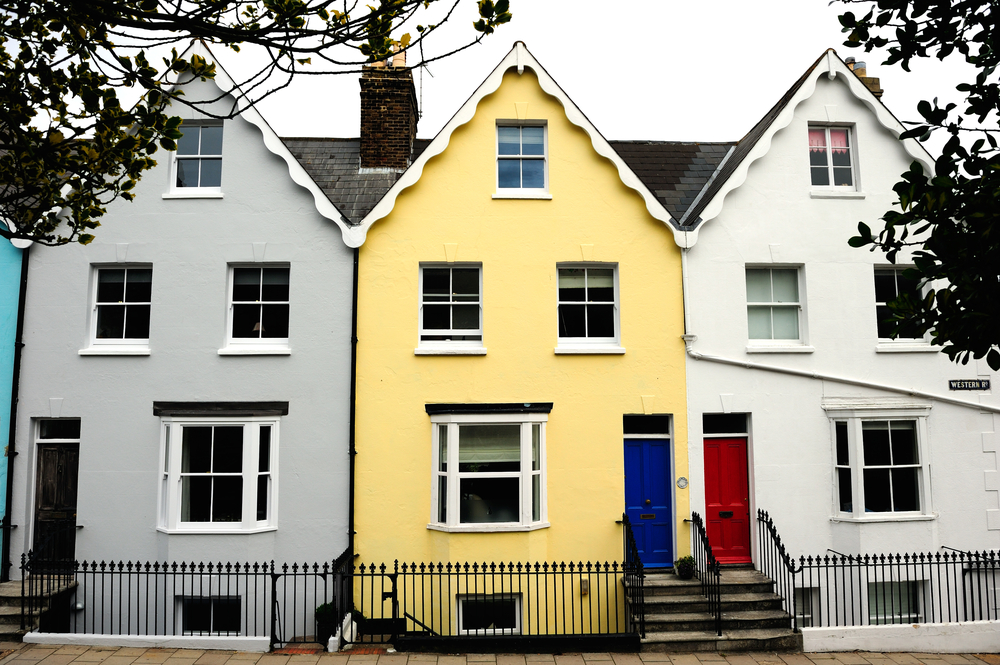In May, house prices fell by 1.7% compared to April when the average cost of a home rose by 0.9%, according to Nationwide.
 This is the biggest monthly fall since February 2009 and takes the average house price in the UK to £218,902.
This is the biggest monthly fall since February 2009 and takes the average house price in the UK to £218,902.
On an annual basis, house price growth slowed to 1.8% in May from 3.7% in April as the housing market slowed sharply due to the lockdown to control the spread of coronavirus.
Before the Covid-19 pandemic hit, the first three months of 2020 saw the housing market steadily picking up.
Robert Gardner, Nationwide’s chief economist, said: “Housing activity levels and price growth were edging up thanks to continued robust labour market conditions, low borrowing costs and a more stable political backdrop following the general election.”
Data from HMRC showed that residential property transactions were down 53% in April compared with the same month last year.
Nationwide has less data to assess house prices as its mortgage activity has also declined sharply so how accurate is this latest house price index?
Gardner explained: “Our ability to generate the house price index has not been impacted to date, as sample sizes have remained sufficiently large (and representative) to generate robust results.
“Low transaction levels may still make gauging price trends difficult in the coming months – especially for regional indices, which by their nature have lower sample sizes.”
Pandemic’s impact on home selling
Even though lockdown is being gently lifted and there is demand for home buying, behavioural changes and social distancing are likely to impact on house sales for some time.
Gardner said: “Our recent market research survey suggested that around 12% of the population had put off moving as a result of the lockdown. Most viewed the current situation as a temporary pause in the market, with would-be buyers now planning to wait six months on average before looking to enter the market.
“Peoples’ housing preferences may also be impacted. Indeed, about 15% of people surveyed said they were considering moving as a result of life in lockdown, with a third (34%) stating they think differently about their home as result of the Covid-19 outbreak, especially the importance of a garden and the need for more indoor space.
“Moreover, 22% of people said they had changed their mind as to what constituted the most important aspects of a home and are considering improving their home as a result of Covid-19.”
Price negotiation
Lucy Pendleton, property expert at independent London estate agents James Pendleton, noted that the housing market only restarted half way through May. She reckons the fall in house prices will likely have been caused by vendors most keen to sell and willing to negotiate on price to get things moving quickly.
She commented: “A wave of gazundering has hit the market in the past fortnight but these buyers have been left feeling a little deflated. The vast majority of those who thought they would grab a bargain post-lockdown haven’t.
“Since the market burst back into life half way through the month, 79% of buyers who had already agreed purchases before lockdown tried to reduce their price. Most succeeded but not on the scale they were expecting.
“In all, 99% of them failed to achieve a reduction of more than 2.5%. The only exception has been a 6% reduction achieved on a house that had been listed for sale at £2.5 million.
“Of the remaining 9% of properties where buyers were unsuccessful in winning a reduction, all have received acceptable offers from new buyers, and 63% of these have been for higher amounts than before.
“The weight of the attack on sale prices agreed before lockdown has caught us a little by surprise but it’s still very early days and prices are showing a great deal of resilience. In fact, new properties hitting the market are being listed at roughly the same level as pre-lockdown valuations.
“Activity levels are impressive across the board too. Last week, on an annual basis, viewings were up 15%, the number of offers being received was up 10%, new sale instructions were up 30% and new buyer registrations were up 5%.”














